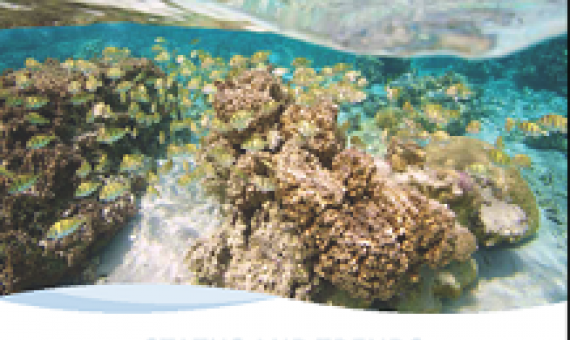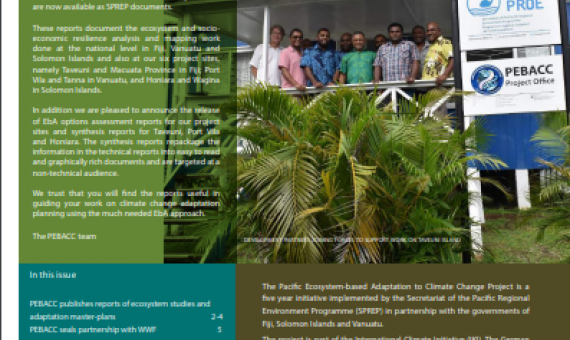Existing MPAs in the equatorial eastern Pacific region form a relatively well-connected network for corals: at least 40% of coral larvae released per year from these MPAs should stay within the network. But more coastal MPAs are needed to improve the connectivity.
The joint initiative, worth €21 million, was launched during yesterday's One Planet Summit in New York...the EU, France, Australia and New Zealand have joined forces to make it a reality. Click on the link below to read the full article.
...this report clearly demonstrates that Pacific reefs without much doubt contain the best coral reefs systems in the world and should remain in that position for the immediate decades to come
Status and Trends of Coral Reefs of the Pacific
This report of 220 pages written by nearly 90 authors clearly presents the summation of an enormous amount of data and information on 19 of the 23 nations and states of the Pacific and outlines both the problems and stresses on these thousands of reefs, and the potential that these reefs will prove to be the reservoir of coral reefs for the world in the immediate future with the largest threat being global climate change.
New Zealand and Japan will cooperate to ensure the success of the Pacific Climate Change Centre in Samoa, Foreign Minister Winston Peters has announced. Click on the link below to read the full article.
Welcome to this sixth edition of the SPREP Pacific Ecosystem-based Adaptation to Climate Change (PEBACC) project newsletter, an initiative to disseminate information on Ecosystem- based Adaptation (EbA). This edition covers the period from April to July 2018.
Bringing together over 200 people to discuss challenges, solutions and actions to address waste challenges across the region, the Clean Pacific Roundtable is also the platform for sharing experiences. Click on the link below to read the full article.
Report for the BIOPAMA PACIFIC REGIONAL INCEPTION WORKSHOP Apia, Samoa 11TH to 15TH June 2018
To formally launch the second phase of the Biodiversity and Protected Areas Management (BIOPAMA) programme, a regional inception workshop for the Pacific was held at the Tanoa Tusitala Hotel, Apia, Samoa from 11th to 15th June 2018. The aim of the inception workshop was to ensure that all 15 countries in the Pacific ACP Group of States were engaged for the second phase of BIOPAMA. The working title of the workshop was ‘Regional Workshop on Improving Information and Capacity for More Effective Protected Area Management and Governance in the Pacific’.
Kayangel Atoll is set to become the first inhabited island in the Pacific nation of Palau to be cleared of rats.
The Blue Charter maps out efforts to protect oceans and marine environments throughout the Commonwealth, from threats such as climate change, pollution and over fishing.Click on the link below to read the full article.












